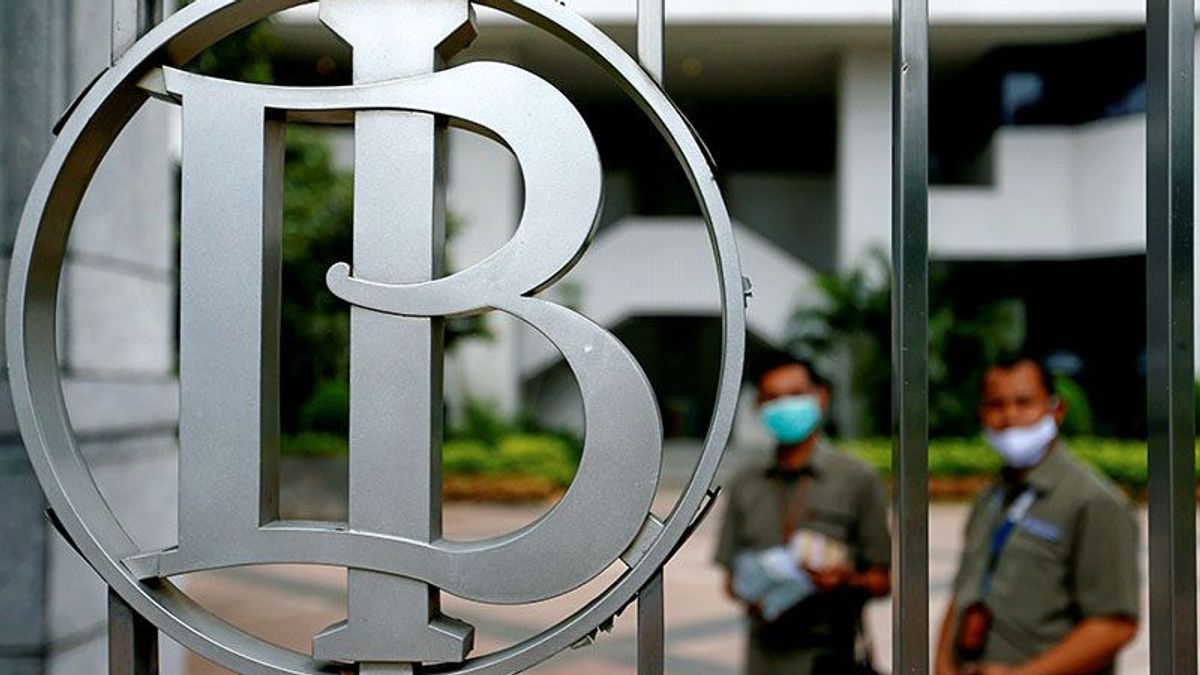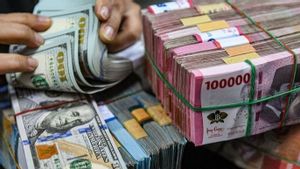JAKARTA - Bank Indonesia (BI) is known to be holding a Board of Governors' Meeting (RDG) this week, namely June 21-22 to discuss the latest monetary conditions. One of the important points in the discussion is the determination of the reference interest rate or BI rate which is the benchmark for the level of interest in the country.
This was revealed in Bank Indonesia's fixed schedule for 2022 which was launched at the end of last year.
"BI has set a schedule for the Monthly Board of Governors' Meetings throughout 2022 as part of transparency and accountability in carrying out their duties, particularly in the process of formulating and determining the policy mix," BI said in a release some time ago.
So what is the projection of the central bank's policy this time?
In the last RDG in May 2022, the monetary authority chose to keep the benchmark interest rate at 3.50 percent. This figure has been maintained by BI since 2020 in response to the current pandemic conditions. In addition, the BI rate of 3.50 percent is the lowest level in the history of the central bank.
Furthermore, Bank Indonesia's decision to maintain the benchmark interest rate last month was based on the amount of domestic inflation which is considered to be still under control in the range of 3 percent plus minus 1 percent.
"This is in line with efforts to maintain exchange rate stability, as well as continue to encourage economic growth, amidst high external pressures related to geopolitical tensions between Russia and Ukraine as well as accelerating normalization of monetary policy in various developed and developing countries," said BI Governor Perry Warjiyo last month.
SEE ALSO:
The direction of the increase in interest rates has actually been seen from the central bank's steps in accelerating the normalization of liquidity policy through a gradual increase in the Statutory Reserves (GWM).
In addition to influencing bank interest rates, both for deposits and loans, the BI rate also has implications for the amount of interest expense that must be borne by the government. As is known, the government receives funding from Bank Indonesia through the burden sharing scheme to finance the APBN.
VOI noted that the collaboration between the government and Bank Indonesia was contained in a Joint Decree (SKB) between the Minister of Finance and the Governor of BI. This SKB came into effect in 2020 with a financing commitment from BI to the State Budget of IDR 473.42 trillion.
Then the SKB II for the 2021 period with a realization of around IDR 201 trillion. Then in SKB III this year, the monetary authority plans to purchase Government Securities worth IDR 224 trillion.
From the information compiled by the editors, every time the central bank raises interest rates by 0.25 percent or 25 basis points, the government's debt burden is estimated to increase by IDR 33 trillion. Meanwhile, the estimated debt interest payments throughout this year are believed to reach IDR 405 trillion, or the equivalent of 15 percent of state spending which amounted to IDRD 2.714 trillion.
The English, Chinese, Japanese, Arabic, and French versions are automatically generated by the AI. So there may still be inaccuracies in translating, please always see Indonesian as our main language. (system supported by DigitalSiber.id)















